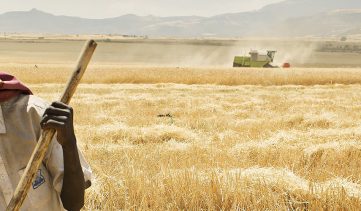Improved management of natural and man-made shocks in the short-term, and greater investments in political, social and economic underpinnings of societies in the longer term can reduce risks of food crises. This would lower food assistance expenditures significantly, according to the new World Food Programme (WFP) report “Preventing Food Crises.”
Additional highlights from this week’s Compact2025 News in Brief include:
- An Annals of Nutrition & Metabolism article summarizes the closing lecture of the 21st International Congress of Nutrition calling for nutrition scientists to contribute to food system transformation to increase access to healthy diets.
- New analysis by WaterAid and PATH’s Defeat Diarrheal Disease Initiative shows major potential gains from coordinating child health and WASH interventions between relevant ministries and agencies.
- The Scaling Up Nutrition (SUN) Movement Secretariat will host a SUN Nutrition Hub during the 71st World Health Assembly, May 21–25, in Geneva.



